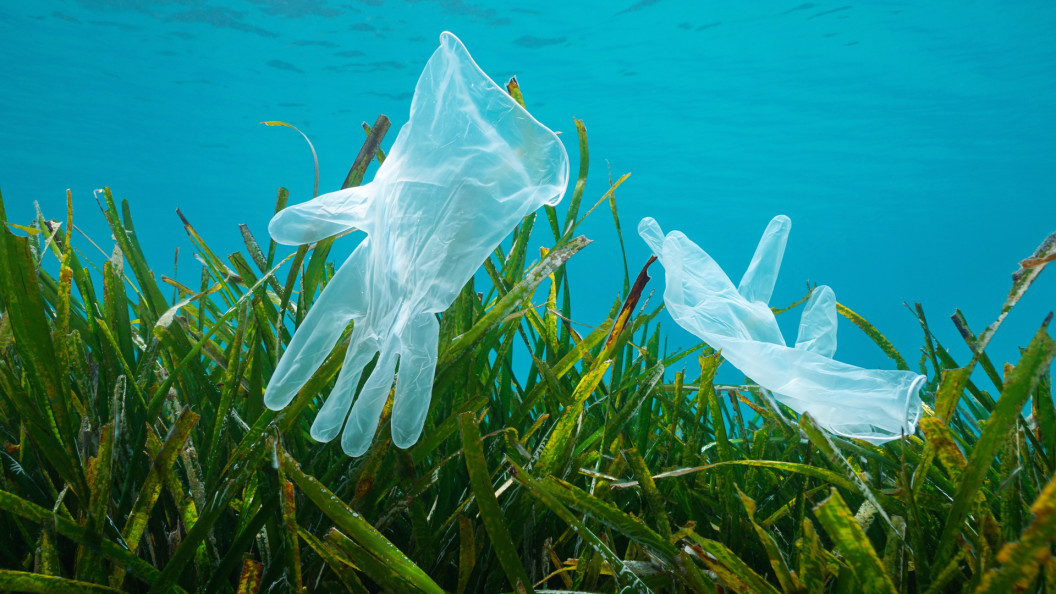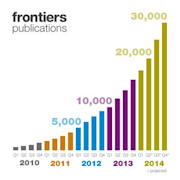- Science News
- Environment
- From microplastic waste to large, ancient squirrels: Five Frontiers articles you won’t want to miss
From microplastic waste to large, ancient squirrels: Five Frontiers articles you won’t want to miss
By Deborah Pirchner, Frontiers science writer

Image: Shutterstock.com
At Frontiers, we bring some of the world’s best research to a global audience. But with tens of thousands of articles published each year, it’s impossible to cover all of them. Here are just five amazing papers you may have missed.
UK seafloor sediments rich in microplastics
For years, plastics have made up a large portion of the debris polluting the marine environment. Much of this plastic consists of particles under 5mm in any dimension. Writing in Frontiers in Marine Science, an international team of researchers from the UK and Norway examined the occurrence and abundance of microplastics in UK seafloor sediments between 2013 and 2021. The scientists used a fast-screening approach for the detection and quantification of microplastics in sediment samples.
They detected microplastics in every sample collected from 15 sites around the UK, which supports the argument that seafloor sediments are suitable matrices for the long-term monitoring of microlitter. The adoption of seafloor sediments as a common indicator for microlitter for the north-east-Atlantic region would allow for future assessments at a regional level as well as regional action plans rather than isolated national remediation measures, the researchers pointed out. The study represents the longest data series for seafloor sediments currently available worldwide.
Article link: https://www.frontiersin.org/articles/10.3389/fmars.2022.1093815/full
Earliest records of large squirrels found in northern Asia
Fossil records help us understand derivation, geographical distribution, and diversification of species. Now, a team lead by Prof Qiang Li from the Chinese Academy of Sciences discovered new evidence that squirrels, the fourth most diverse family of living mammals, populated northern Asia by the late Eocene, dating from 56 million to 33.9 million years ago, they write in Frontiers in Earth Science.
Close to the China-Kazakhstan border, the scientists discovered two new extinct large squirrel species, weighing in at 1.2kg and 2.6kg, respectively. Together with two types of Sciuridae – a family including small and medium-sized rodents – found in North America, these two new squirrels are the earliest records of the family. Through analysis of the squirrels’ teeth, the researchers were also able to determine that by the late Eocene flying, ground and tree squirrels had diverged from one another.
Article link: https://www.frontiersin.org/articles/10.3389/feart.2022.1004509/full
Gut bacteria influence immune response during malaria infection
Every year, single-celled parasites called plasmodia cause more than 200 million cases of malaria, resulting in approximately 600,000 deaths. In a paper published in Frontiers in Cellular and Infection Microbiology, a team of scientists led by Danielle N Farinella at Wake Forest University points out that information on how a malarial infection affects the gut microbiome is limited.
To this end, they examined how malaria affects the composition of rhesus macaques’ gut microbiome during infection. Performing DNA sequencing from rectal swabs of rhesus macaques and examining blood plasma, they found evidence that the metabolic shift occurring during acute infection is associated with an accompanying shift in the gut microbiome. After treatment, this shift is reversed. “This suggests that the gut microbiome is more greatly impacted by the acute systemic metabolic and immune responses of the host than by the mere presence of parasites,” the authors wrote.
Article link: https://www.frontiersin.org/articles/10.3389/fcimb.2022.1058926/full
He just wants to play: Juvenile play more important to young male rats than their female counterparts
Play is a behavior found in most mammals while they are young. Its exact benefit is debated; however, some rodent studies have shown that juvenile play is essential to develop appropriate behavior and reproductive success in adulthood.
Writing in Frontiers in Behavioral Neuroscience, a team of researchers led by Ashley Marquardt at the University of Maryland examined the sex-specific effects of juvenile play deprivation in male and female rats. In line with previous findings that males of nearly all species play more often and harder than females, they found that male rats react more severely to play deprivation: “Males prevented from playing as juveniles exhibited decreased sexual behavior, hypersociability, and increased aggressiveness in adulthood, with no effects on these measures in females,” they wrote. Their findings may indicate than the inability to play has more severe consequences on boys than girls – also in other mammalian species.
Article link: https://www.frontiersin.org/articles/10.3389/fnbeh.2022.1076765/full
Listening to a podcast outdoors is different to listening at work
In recent years, the popularity of podcasts has risen sharply. There is a podcast for every topic, from food to fitness, from book review to bookkeeping. Podcasts play in the car, at work, while waiting at the dentist’s office – and that matters.
Environment and circumstance have impact on listeners’ attentional engagement, scientists from the UK have found, writing in Frontiers in Psychology. For their study, Jay Harrison and colleagues used an online questionnaire on listening habits and behaviors they distributed to 264 participants. The researchers looked at how various situational circumstances influenced attentional engagement. Their findings suggested that factors such as listening ‘indoors’ and ‘at home’ were the most closely associated with higher attentional engagement, and that listeners who listened for longer tended to experience higher attentional engagement. The results are the first to support the hypothesis that context matters. They may have implications for future research exploring mobile audio listening and environmental context from the perspectives of media personalization and attentional processing, the authors wrote.
Article link: https://www.frontiersin.org/articles/10.3389/fpsyg.2022.1074320/full
REPUBLISHING GUIDELINES: Open access and sharing research is part of Frontiers’ mission. Unless otherwise noted, you can republish articles posted in the Frontiers news site — as long as you include a link back to the original research. Selling the articles is not allowed.







